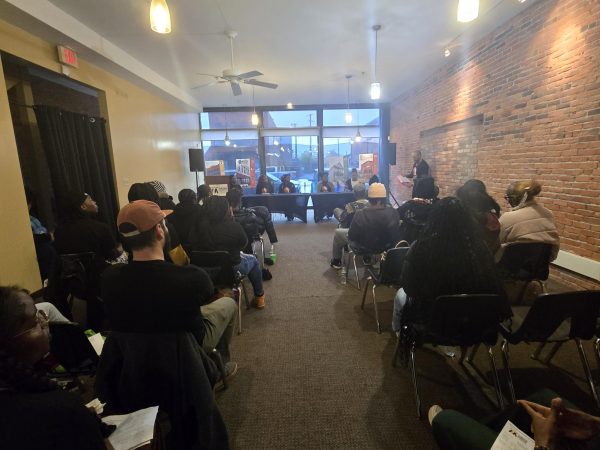How social media can sabotage your professional life
A professional’s online presence can dynamically affect their chances of being hired, promoted or let go. Many employers do research on potential employees via social media platforms.
There are a lot of mistakes that people new to the professional world commonly make that can sabotage their chances of getting hired, even if they are completely qualified.
David Chen, the CEO of Strikingly.com, a web design company that focuses on personal branding, mapped out four major mistakes that professionals make online.
One major mistake is the untimeliness of people’s posts. It’s common for people to post social media content from their phones during the workday.
“Whenever you’re working in an environment where Internet is easily accessible, it can be tempting to get on Facebook, Twitter or whatever social media platform you use and post,” said Jessie Lombardo, assistant director of the career development center on campus.
“You’re not being productive for whatever entity you’re working for when you’re on social media,” said Jack Karlis, an assistant professor in the communication department who specializes in social media.
Lombardo said students looking to build their online presence should know when to post. She said there are times that get substantially more viewers than others. She said online tools like HootSuite allow you to automatically post content during peak hours. That way, if peak viewing hours are during work, you don’t have to be online to take advantage of it.
Chen said in an email that a key part of building a successful online presence is finding a balance between work-related and social content.
Karlis said that the best way to balance personal and professional use of social media is to have two accounts.
Lombardo said publishing a lot of personal information on social media could give future employers pre-conceived notions about what values you have. She said that there should be a balance, and the balance should weigh more to the professional side.
“If you’re a job-seeker, you can create a Twitter feed that is professional,” Lombardo said. “That way, you can create a niche for the industry you are looking to go into.”
Lombardo said she has done research on candidates for positions in the Career Development Center, and developed opinions of them based on what television shows they say they like on Facebook.
“Even one off-color post can really tarnish the way you’re viewed,” Lombardo said.
She said if it’s going to be out there, and viewable, keep it professional.
“You might put on there that you like to watch the Jersey Shore, well, I’m going to make connections about who you are as a person based on some of those associations,” Lombardo said.
Chen said that reusing content from your personal pages and posting it on professional accounts is another big mistake, because it makes your personal stuff more searchable, and can potentially lead future employers to questionable content.
“You need two accounts,” Karlis said, “You need a public and a private, and never let your boss into your account.”
Chen said that your first impression online is important to employers. He said if the first few searches for your name on Google don’t represent what employers are looking for, then it can harm your chances.
Karlis said students who have a less-than-professional public presence on social media should consider what he refers to as the “phoenix effect.”
He said a lot of people have been active on social media for quite some time, and now that they are graduating, their online persona does not reflect who they are now.
“The phoenix effect is where you start over digitally,” Karlis said. “You establish your public profile, you establish your public versions of your private profiles, and you make sure the two never meet.”
The Career Development Center will be offering a “quick and dirty” event April 14 where students can see what digital dirt comes up when employers do research on them. The event will be in the Student Union lobby at 11 a.m.
“College kids need to reinvent themselves online,” Karlis said. “They need to start over.
Email: manzella.record@live.com






